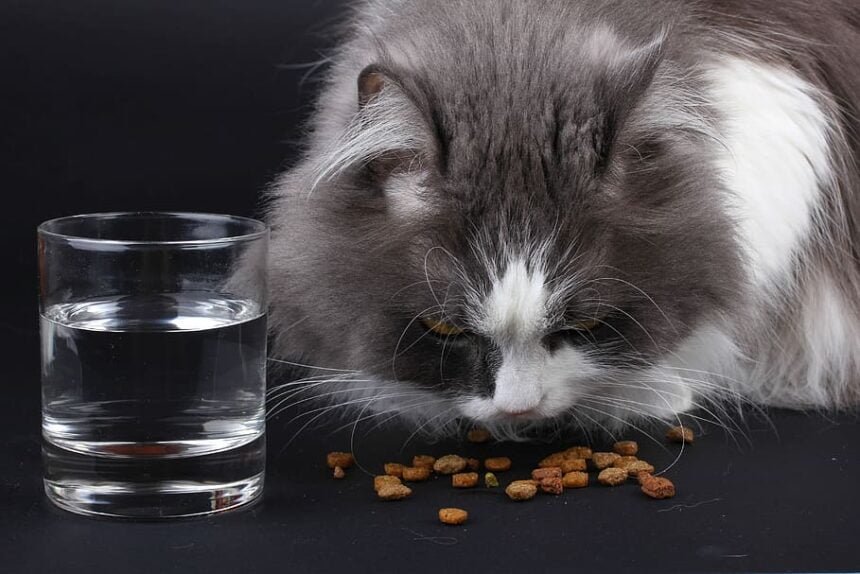A healthy appetite is essential for maintaining the overall well-being of cats. When a cat refuses to eat, it can be a cause for concern as it may indicate an underlying issue. This article explores the reasons behind a cat’s loss of appetite and provides guidance on how to address this problem. By understanding the importance of a healthy appetite, cat owners can take proactive steps to ensure their pet’s well-being.
Understanding Normal Eating Behavior in Cats
Typical eating habits of cats include multiple small meals throughout the day, reflecting their natural instinct as hunters. Cats are obligate carnivores, meaning they require a diet primarily consisting of animal-based protein. However, individual cats may vary in their preferences and appetites. External factors like environmental changes, stress, or underlying health conditions can influence their eating patterns. It is essential to be familiar with your cat’s baseline eating behavior to notice any deviations in appetite.
Potential Medical Reasons for Decreased Appetite
A decrease in appetite is often an early sign of various medical issues in cats. Dental problems, oral infections, gastrointestinal disorders, kidney disease, and respiratory infections can lead to discomfort while eating. In some cases, pain or nausea may be causing your cat to avoid food. It is crucial to promptly consult a veterinarian if your cat’s appetite decreases or if they stop eating altogether, as these issues may require medical intervention and treatment.
Stress and Anxiety as Appetite Suppressants
Cats are sensitive creatures, and changes in their environment can cause stress and anxiety. Stressors like moving to a new home, the introduction of new pets, or loud noises can lead to appetite suppression in cats. Additionally, changes in daily routines or disruptions in their territory can also impact their eating habits negatively. Creating a calm and secure environment can help alleviate stress and improve their appetite.
Changes in Diet or Feeding Routine
Abrupt changes in a cat’s diet can lead to reluctance or refusal to eat. Cats prefer gradual transitions when switching food to avoid digestive upset. Similarly, inconsistent feeding schedules can confuse your cat and affect their eating behavior. Establishing a regular feeding routine can help encourage healthy eating habits.
Dental Problems and Oral Health
Dental issues such as gum disease, tooth decay, or broken teeth can make eating painful for cats. Cats may avoid hard or crunchy foods and show a preference for softer options. Regular dental check-ups and proper dental care are vital to prevent oral health problems that can affect their appetite and overall well-being.
Environmental Factors Affecting Appetite
The environment in which a cat eats can significantly impact their appetite. Cats prefer a quiet and secluded space to eat, away from loud noises and disturbances. Placing their food and water dishes in a safe, peaceful location can help them feel comfortable and secure during mealtimes. Additionally, keeping their feeding area clean and free from any strong odors can also encourage a healthy appetite.
Behavioral Causes of Appetite Loss
Behavioral issues can also contribute to a decrease in appetite. Cats that are bored, anxious, or depressed may lose interest in food. Engaging in interactive play and providing mental stimulation can boost their mood and stimulate their appetite. Moreover, sudden changes in their living situation, such as the loss of a companion animal or a family member, can also affect their emotional well-being and eating habits.
The Role of Age in Appetite Changes
A cat’s age can influence their appetite and dietary needs. Kittens require more frequent meals due to their rapid growth and higher energy levels. Adult cats have stabilized eating habits and may be more selective eaters. Senior cats may experience age-related issues that affect their appetite, such as dental problems or reduced sense of smell. Adapting their diet to their life stage and addressing age-specific concerns can help maintain their interest in food.
Potential Allergies or Food Sensitivities
Food allergies or sensitivities can cause gastrointestinal discomfort and a loss of appetite in some cats. Common allergens include certain protein sources or grains. If you suspect your cat has food sensitivities, your veterinarian may recommend an elimination diet or hypoallergenic food trial to identify and eliminate the problematic ingredients.
Avoiding Common Feeding Mistakes
Overfeeding or offering too many treats can lead to obesity and a lack of interest in regular meals. Following feeding guidelines based on your cat’s weight and activity level is crucial. Offering a balanced diet and avoiding excessive treats can maintain a healthy appetite and weight.
Addressing Behavioral and Medical Issues Together
When your cat experiences a decrease in appetite, it is essential to address both behavioral and medical factors. While environmental enrichment and dietary changes can help with behavioral causes, ruling out underlying health problems is equally important. Working collaboratively with a veterinarian and possibly an animal behaviorist can provide comprehensive care for your cat’s well-being.
Tips for Encouraging Your Cat to Eat
Introducing new, enticing food options, warming their food slightly to enhance aroma, and offering interactive feeding toys can make meals more appealing to picky eaters. It’s essential to be patient and persistent when trying to stimulate their appetite, allowing time for your cat to adjust to changes in their routine or diet.
Monitoring and Recording Eating Patterns
Keeping a food diary can be beneficial when trying to understand your cat’s eating habits. Note down the type of food offered, the amount consumed, and any changes in appetite. This information can be helpful when discussing your cat’s condition with the veterinarian, as it provides valuable insights into their overall health and potential triggers for appetite changes.
The Role of Hydration in Appetite
Proper hydration is essential for a cat’s well-being and can significantly impact their appetite. Cats may not drink enough water if they are solely on a dry food diet, leading to dehydration and reduced interest in eating. Ensuring access to fresh water at all times and offering wet food can help maintain their water intake and overall appetite.
When to Seek Professional Help
A cat not eating for more than 24 hours is cause for concern, and immediate veterinary attention is necessary. If your efforts to entice your cat to eat are unsuccessful, or if you notice other concerning symptoms alongside the decreased appetite, such as vomiting, lethargy, or weight loss, it’s essential to schedule a veterinary visit promptly. Early diagnosis and treatment can prevent further complications and help your cat recover faster.
Remember that each cat is unique, and the reasons for a decreased appetite can vary. Paying close attention to your cat’s behavior, maintaining regular veterinary check-ups, and providing a nurturing and stimulating environment are essential in ensuring their overall health and well-being. Be patient and understanding during times of appetite loss, and with the appropriate care and attention, your feline friend will hopefully regain their appetite and return to a healthy and happy state.







